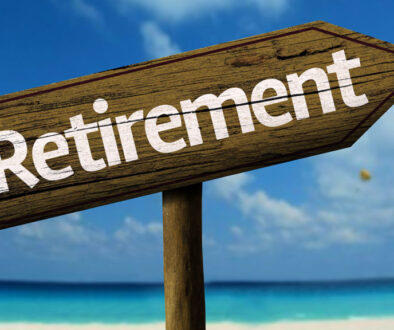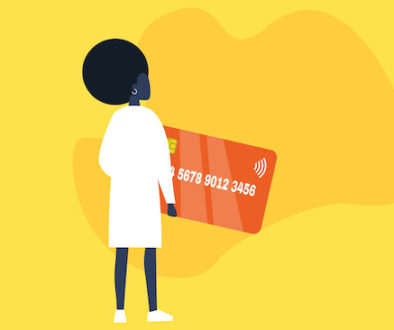Why is my car insurance expensive?
Owning a vehicle means car insurance is part of the deal, but it can sometimes feel like a hefty expense. Many drivers wonder, “Why is my car insurance so high?” Figuring out why your insurance might be pricier than you’d expect can help you make smarter choices and possibly lower your premiums. Let’s walk through the key factors that could be driving up the cost of your insurance and how they impact what you pay.
- Your Driving History One of the top things insurance companies consider is your driving record. If you’ve had accidents, speeding tickets, or other traffic violations, the insurer might see you as more of a risk. This means they think you’re more likely to have another accident, so they’ll charge higher premiums to cover that risk.
For instance, if you were found at fault in an accident, your rates could go up because the insurer assumes you might be involved in another one. On the flip side, if your record is clean—no accidents, no tickets—your insurance will likely be cheaper.
- Age and Experience Matter Your age is a big factor in determining your car insurance rates. Younger drivers, particularly those under 25, generally pay more. Why? Because insurance companies view them as less experienced and more accident-prone.
For example, teenagers and young adults often face higher premiums because statistics show they tend to get into more accidents than older drivers. But if you’re older and have more experience, especially with a good driving record, your rates are usually lower.
- The Car You Drive The kind of car you drive plays a major role in your insurance costs. Some cars are simply more expensive to insure, and here’s why:
- Luxury or high-end sports cars: If you drive an expensive vehicle, expect to pay more. These cars cost more to repair or replace if damaged in an accident.
- Safety features: Vehicles equipped with advanced safety features—like airbags and backup cameras—could save you money on insurance because they’re considered less likely to be in serious accidents.
- Risk of theft: Some cars are more appealing to thieves. If you drive a model with a high theft rate, you may see higher premiums.
So, driving a brand-new sports car or luxury vehicle may mean paying more than someone with an older, more common car.
- Where You Live Your location heavily influences your car insurance rates. If you live in a city with heavy traffic or high crime rates, you’re likely to pay more because the risk of accidents or theft is higher.
- City living: People in urban areas often face higher insurance costs due to the greater risk of accidents.
- Rural areas: If you live in a smaller town or rural area with less traffic, you’ll likely pay less for insurance.
For example, if you’re in a city known for frequent accidents or car theft, your insurer will consider you a higher risk and adjust your rates accordingly.
- Your Insurance Coverage The type and amount of coverage you choose also affect what you pay. Here are some common options:
- Liability: This basic coverage, often required by law, covers damage to others’ property or medical expenses if you’re at fault. It’s generally the cheapest option.
- Comprehensive: Covers non-collision incidents, such as theft or vandalism, and costs more than liability.
- Collision: Covers damage to your car from collisions, whether it’s your fault or not. Adding it increases your premium.
Opting for more coverage or a lower deductible (the amount you pay out of pocket) will raise your premiums.
- Your Credit Score In many states, your credit score is factored into your car insurance rate. Drivers with higher credit scores are seen as more responsible, making them less likely to file claims. If your credit score is lower, the insurance company may charge you more because they view you as a higher risk.
For instance, someone with a strong credit score might get a discount, while someone with poor credit could face higher costs. Though it seems unfair, insurers often find that those with lower scores file more claims.
- Your Driving Habits How often you’re on the road and what you use your car for can also impact your insurance rates. Insurers look at:
- Miles driven: If you drive long distances regularly, you’re more likely to have an accident, and your rates may reflect that. But if you only drive occasionally, you might pay less.
- Purpose: If you use your car for business, you might face higher rates than if it’s just for personal use or commuting.
For example, if you log a lot of miles for work, your insurer may charge more because you’re at a higher risk of an accident.
- Your Claims History If you’ve filed multiple claims in the past, you might see your rates increase. Insurers review your claims history to predict how likely you are to file another one. Even if past accidents weren’t your fault, having several claims on record can make you appear riskier to insure.
For instance, if you’ve had several car repairs or accidents recently, your insurer may assume you’ll need more in the future and charge you more.
- State Regulations Car insurance rules vary by state. Some states require higher minimum coverage, which can lead to higher premiums. Additionally, some states have “no-fault” insurance, where your policy covers your medical expenses, regardless of who caused the accident, which can also increase costs.
For example, living in a state with higher insurance requirements or a no-fault system might mean paying more compared to a state with lower mandates.
- Untapped Discounts Sometimes, your insurance may be expensive simply because you’re not using all the discounts you’re eligible for. Many insurers offer savings for:
- Safe driving: A clean record might qualify you for a discount.
- Multiple policies: Bundling home and auto insurance could save you money.
- Good student: Young drivers with good grades might get a discount.
- Anti-theft devices: Cars with alarms or other anti-theft features could qualify for a reduced rate.
It’s always worth asking your insurer if you qualify for any discounts you’re not already using.
Conclusion: Why is Your Car Insurance Expensive? Many factors affect car insurance rates—your driving history, the type of car, your location, age, and habits all play a role. Additionally, credit scores, past claims, and the kind of coverage you pick also influence what you pay.
While some things—like your age or where you live—are out of your control, there are ways to reduce your premiums. Keeping a clean driving record, selecting the right coverage, and asking about discounts can all help you save. If your rates seem high, consider shopping around, comparing quotes, and speaking to an agent to get the best deal.



